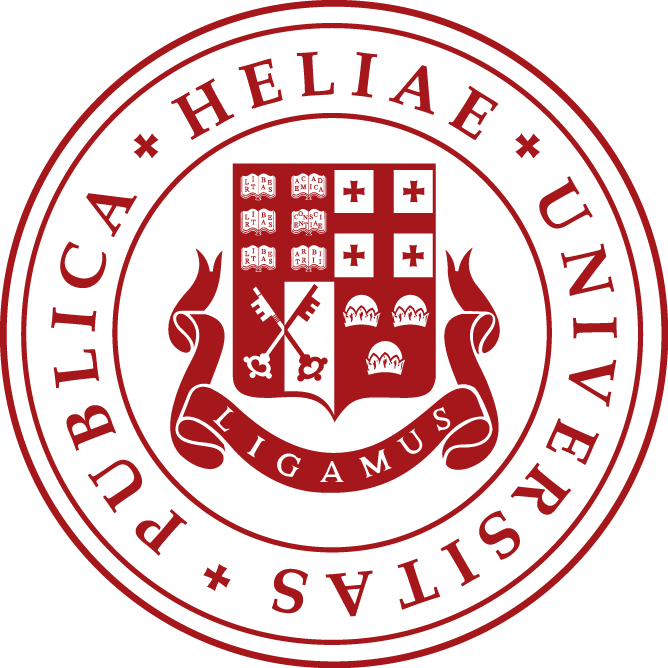Luana Adriano
Luana is a human rights lawyer and a disability rights activist. She acquired a BA in Law (2015) and a MA in Constitutional Law (2018) from Federal University of Ceará, Brazil. She is currently a PhD student in Federal University of Rio de Janeiro, in cotutelle with WWU (2019-2023).
Contact Information: luana.adriano88@gmail.com
Provisional title of the doctoral thesis:
Social construction of autism: legal and bioethical implications for cure and preventionDescription of the research proposal:
The search for a cure for autism is a worldwide phenomenon, which raises bioethical discussions about autonomy, consent and paternalism. Given the ‘treatment vs. acceptance’ debate, the general objective of this project is to structure the foundations of autism bioethics to deal with the issue of cure, considering the social construction of the condition. My main research questions are: 1. What does it mean to say autism is socially constructed - and according to which frameworks can this claim be made?; 2. How do socially-constructed frameworks of autism engage with the moral arguments for autism’s extinction?; 3. How to analyze the interventions pro cure and prevention through the different socially constructed frameworks?; 4. How the social construction of autism reposes the interpretation of certain legal norms related to cure and prevention? My interests hence stand in an interdisciplinary dialogue between bioethics, law and moral philosophy.Ketevani Arjevanidze
Contact information: Arjevanidze.k@gmail.com
I acquired BA in international relations from Tbilisi State University and MA in Philosophy form Ilia State University.My Project:
The thesis “Ethics of Human Moral Bioenhancement” discusses some of the key issues that arise when it comes to improving human morality. On the one hand, the paper presents arguments from the position of both proponents and opponents. On the other hand, it discusses one of the most important issues in the process of bioenhancement - the controversial issue of the existence of a common morality that philosophers have been arguing about for centuries. Eventually, it researches which is the most ethical way to morally bioenhance human being. This topic is becoming more and more relevant in the modern world, which can be explained with the technological advances that we face nowadays. Due to the challenges that humanity faces in modern world immediate attention for this issue is essential. Unlike other issues in bioethics moral bioenhancement is least discussed philosophically. In Georgian, such information is not available at all. The main goal of the thesis is to discuss the philosophical aspects of moral bioenhancement. Introduce the topic to the arguments and answer the research question: Which type of human bioenhancement is the most ethical?Shota Azikuri
acquired a BA Mathematics from Iakob Gogebashvili Telavi State University in 2015 and an MA in Philosophy from Ilia State University in 2018
Contact Information: shota.azikuri.1@iliauni.edu.ge
Website: http://internationaldoctoralschool.iliauni.edu.ge/doctorants/shota-azikuri/Shota’s Project
Title: Science in democracy: between populism and technocracyDescription:
We become more and more dependent on science for our political and practical decisions. But the more we rely on science the more skepticism is there towards it. Instead of being the means of effective governance, science is becoming the crack in our democracies. Some lament scientization of politics and loss of democratic control. Others see general skepticism and populism towards science as an erosion of scientific authority, which is in urgent need of repair. These worries seem to be contradictory, the solution of one problem leads to exaggeration of another. Which is the real problem, which one should we solve? I believe there are elements of truth in both worries and the proper democratic framework for scientific authority can solve both, the problem of skepticism towards science and the problem of technocracy. My project is concerned with an attempt to develop such a conception of scientific authority. I rely on the approaches from political philosophy and ethical theory as well as from social epistemology and general philosophy of science.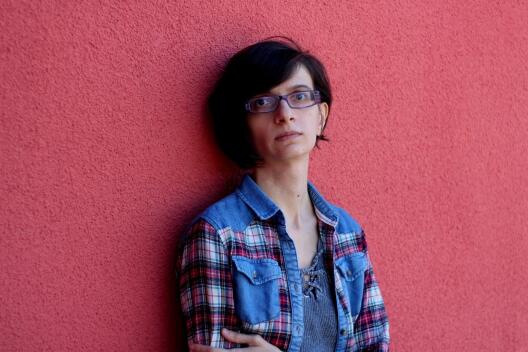
© Women's Gaze Aia Beraia
Aia Beraia holds a BA degree in Political Science from Ilia State University and an MA degree in Gender Studies from Tbiilisi State University. She has worked as an invited lecturer. In addition she has been cooperating with various human rights NGOs, where she contributes mainly as a researcher, translator and trainer.
Contact information: beraia.aia@gmail.com; aia.beraia.1@iliauni.edu.geFeminist Ethics of Sexuality: Sexual Freedom and Sexual Citizenship
Sexuality and the meaning of sexual freedom is discussed in philosophic literature at the intersections of feminist ethics, citizenship and biopolitics. Apart from broad definitions of ‘ethics’, ‘freedom’ and ‘citizenship’ in philosophy, they are also theorized and reconceptualized by feminist and queer theorists. Their work represents a critique of traditional Western ethics and political philosophy which ‘depreciate or devalue women's moral experience.’ Biopolitics is another important concept/theory that can be applied to the issue of sexuality. According to Michel Foucault, power/biopolitics regulates body and life through domination and subjugation – thus biopolitics is presented as a negative force. However, the recent works of Roberto Esposito are an attempt to rethink this relationship between life and power. Esposito equips us with a new concept of ‘affirmative biopolitics’, ‘in which life would no longer be the object but somehow the subject of politics’. Following these debates, the aim of the research is to study the feminist ethics of sexuality through the possible meanings of sexual freedom and sexual citizenship.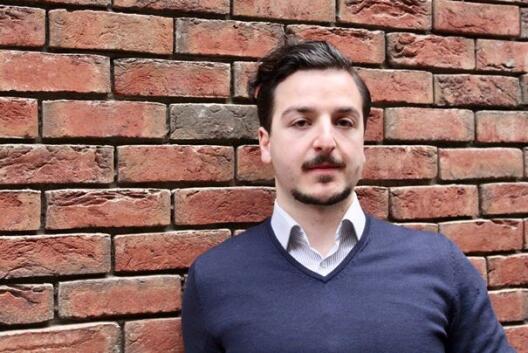
Irakli Dekanozishvili
Contact Information: irakli.dekanozishvili@iliauni.edu.ge
Website: WebsiteIrakli Dekanozishvili has acquired a BA in Philosophy (2015) at Ilia State University. In 2016 he was founded to follow his master's degree in French and German Philosophy (EuroPhilosophie) in the Czech Republic, Belgium, and France in the frame of Erasmus Mundus's joint master's degrees. Currently, he is a Ph.D. student at WWU Münster and ISU as a member of an international interdisciplinary structured program - "Democracy, Human Rights, and Religion" (DHR). Simultaneously, Dekanozishvili is an invited teacher at Ilia State University and a member of S. Tsereteli Institute of Philosophy.
The provisional title of the doctoral thesis: Ethical and Political Implications of Recognition
Project Description:
My project argues that the ethics of recognition has considerable political and ethical implications. The theory of recognition understood as respect in the legal community is compatible with the normative or ideal theory of deliberative democracy. Deliberative democracy is about reasoning together among equals. Free deliberation among equals is the basis for legitimacy. Members of such a community should respect and recognize each other as having deliberative capacities and autonomy. Mutual respect and recognition are intrinsically part of deliberation (Mansbidge et al. 2010, 11). In contrast, showing disrespect to a person could lead to his or her exclusion from the process of deliberation. However, I claim that even in the case of proper mutual respect, a fully-fledged agent of deliberative polis could not be constituted. What deliberative theory lacks are other layers of interpersonal/intergroup recognition that are crucial for full personal integrity. It dismisses (or at least lacks) to consider on the one hand love, affection, and care as primary emotions for every human being, and the category of esteem recognition as crucial for integrating individuals with their distinctive features and different cultural backgrounds on the other. To demonstrate this argument and show its validity we will need to see what the constitutive role of recognition is in making a person. Recognition as an ontological and ethical concept bears the status of having the capacity to be a quintessence for the category of personhood.The ethical function of democratic deliberation consists of promoting mutual respect among citizens. Mutual respect helps the deliberative system to run successfully. It facilitates communication and the exchange of different perspectives of citizens. The moral ground for mutual respect is based on the idea that citizens should be treated "not merely as objects of legislation, as passive subjects to be ruled, but as autonomous agents who take part in the governance of their society, directly or through their representatives". So, respecting and recognizing fellow citizens as autonomous agents is a crucial precondition for the ethical dimension of democratic deliberation. Though the moral basis is not controversial, how exactly mutual respect should be interpreted and practiced could raise some doubts and ambiguities. We can distinguish between two fundamental functions of deliberative democracy: Epistemic and ethical. The goal of the epistemic function is to produce preferences, opinions, and decisions based on rational and logical reasoning. Including adequate considerations from all corners that ought to be discussed and appropriately placed. Epistemically well-grounded opinions and decisions should be in connection with the preferences and opinions of fellow citizens. Their views should be included in epistemically well-founded deliberation. In the case of the ethical function, scholars argue over the meaning of mutual respect, about what constitutes its successful accomplishment, and how it should proceed. The claim is that "mutual respect is intrinsically a part of deliberation”. To deliberate with another is to understand the other as a self-authoring source of reasons and claims".
To fail to do so, i.e., to fail to show mutual respect and recognition of one's capacity of being autonomous is, in effect, to withdraw this or that person from fair deliberation. Among other things, mutual respect implies non-domination, no subjugation, or any kind of strategic attitude towards the other person. By refusing to equally respect others’ rights and capacities of being autonomous, you automatically lose your own deliberative influence or role. It is an intersubjective sphere, where the Hegelian recognition model works in a sense that, in order for me to be recognized I need to recognize others and vice versa. Recognition and mutual respect thus play a huge role to define the moral scope of rational agents. Those who are part of this normative and ethical interaction could be granted to have deliberative influence (Cf. second-person authority). In other words, this form of ethical interaction provides all with an opportunity to be autonomous agents taking part in the decision-making process and not just be passive subjects of the ruling power, excluded from the polis.
Tinatin Khachidze
Tinatin acquired her bachelor degree in Law from Tbilisi State University (Georgia) in 2017 and an LL.M. in German Law from WWU Münster in 2019.
Contact Information: ti.khachidze@gmail.com
Provisional title of the doctoral thesis: Liberal Neutrality – A philosophical and legal analysis
Description of the research project:
The principle of state neutrality, which originated in the liberal tradition, holds that liberal democracies must remain neutral towards different conceptions of the good life of their citizens. This idea has generated many lively and profound controversies in political philosophy. The questions of what exactly is meant by neutrality, where its limits lie and why states should observe this principle are still open. Moreover, the issue is also very topical from a legal point of view - in both Georgia and Germany the constitutional principle of state neutrality in religious and world view matters is in force. In law the need for concrete answers is even greater, since the constitutional courts have to make binding decisions about actual cases in which human rights might be violated.Against this background, my dissertation aims to systematically analyze the principle of state neutrality, starting from its roots (philosophical basis) and ending with its fruits (concrete case law). Attempts are made to clarify the content of this principle as much as possible, to uncover blind spots and to find theoretically sound but also realistic solutions.
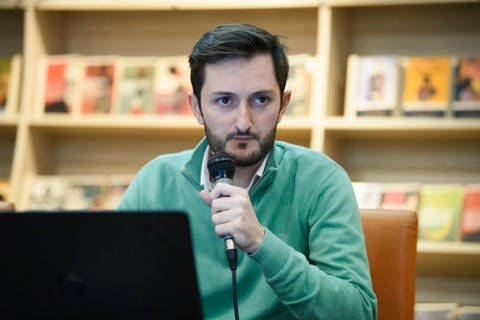
© Iva Lomidze Ivane Lomidze
Ivane Lomidze acquired a BA in Sociology from Ilia State University (Georgia) in 2016 and an MSc in Development Studies from Lund University (Sweden) in 2019
Contact Inormation: Ivane.lomidze.1@iliauni.edu.ge
Ivane’s Project Difference and Pluralism: Challenging normative models of Deliberative and Agonistic Democracy
Abstract
The problem of difference is one of the central pillars of the ongoing debates between the proponents of deliberative and agonistic models of democracy. Agonist democrats criticize deliberative democracy for ignoring community-specific differences and plural forms of life, forcing identity-based difference to merge into one homogenous political project, and indicate the ontological impossibility of the power-free constitution of social relations organized by rational consensus. As an alternative to the political model based on public deliberation, agonistic democrats, mostly drawing on Ludwig Wittgenstein’s notion of language games but also on post-structuralist theory and post-modern philosophy, reject the universally applicable rules either on substantive (Rawls 1993, Cohen 1989) or procedural (Habermas 1992; Benhabib 1992) level, and celebrate the understanding of politics as a context-specific, game-like terrain where struggles for recognition and formation of identities are the agonic game of freedom (Connolly 1991; Honig 1993; Tully 1995; Mouffe, 2000).However, the offered research takes its starting point in the claim that while rejecting the notions of universal justice and universal reason and indicate problematic aspects of deliberative democracy in many important areas, the model of agonistic democracy fails to normatively ground the possibility of adjudication of difference and is unable to define how can just/legitimate claims be distinguished from unjust/illegitimate claims. In this sense, agonistic democracy creates a danger to encourage injustice and intolerance with the name of pluralism (Benhabib 1996; Kapoor, 2008). To solve the shortcoming of the models of deliberative and agonistic democracy in relation to the problem of difference that is the main purpose of the offered research project, I will analyze: How can the idea of democratic representation of difference and pluralism be normatively grounded in a way that while avoids universal procedural or substantive norms, does not encourage injustice and intolerance? The central suggestion is that moral particularism criticizing meta-ethical and meta-epistemological prejudices of rationalism (Vieth & Quante, 2010) and defining reason as a “contingent matter” reliant upon the particular context (Dancy 2004), could provide an ontological ground to solve the problem of the adjudication of the difference without maintaining universally applicable moral principles.
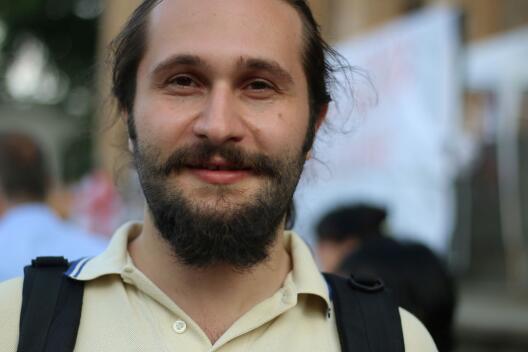
© Mate Tevzadze Mate Tevzadze
Mate acquired a BA in Philosophy from Ilia State University in 2016. He completed a Master of Philosophy at Ilia State University in 2020, as well.
Contact Information: mate.tevzadze.1@iliauni.edu.ge
Mate's Project: Hegel’s practical philosophy: social ontology and its internally differentiated eva- luative-normative structure

